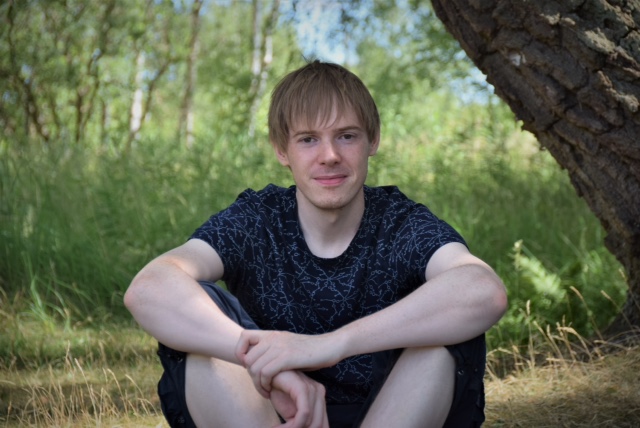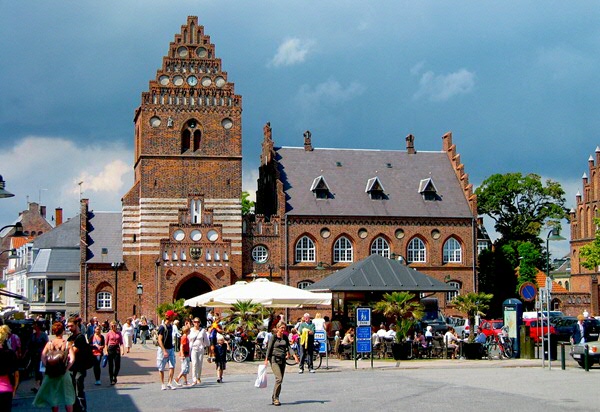‘The Danes enjoy life more.’
He is not much of an adventurer. Maarten van Wijhe never had any international ambitions. But now that he has arrived in Denmark, he intends to stay for a long time.

‘That's right,’ Maarten van Wijhe confirms. The Danish town of Roskilde is most famous for its annual rock festival. ‘During the festival, you’ll see tents and sleeping bags lying around in the corridors. Most foreigners don't even know that Roskilde is a university town.’ Van Wijhe started working at the university there in January 2018.
Maarten (30) is a UG alumnus by rights of his dissertation. He studied biomedical sciences in Nijmegen and obtained his PhD in Groningen with a research project that took place mainly at the RIVM (Netherlands National Institute for Public Health and the Environment) in Bilthoven. ‘I didn't see much of the University of Groningen.’ Van Wijhe's thesis defence, in September last year, was a fiery contribution to the anti-vaxx debate. Van Wijhe used historical statistical data to deduce that, thanks to seven national vaccination programmes, between 6,000 and 12,000 deaths were prevented among children and adolescents born between 1953 and 1992.
In Roskilde, the post-graduate is once again focusing on historic epidemics, such as the Spanish flu in 1918. Apart from his post-graduate work, he also works at the Statens Serum Institut in Copenhagen, the Danish version of the RIVM, where he is collaborating on a European study into an airway virus.

How do the Danes view vaccination? He hasn't really looked into that yet. ‘What I know is that the level of vaccination is comparable to that in the Netherlands, and there's no Bible belt in Denmark.’
He met his current boss, a Danish professor, during his first conference as a junior researcher. He decided to stay in touch with her, thinking that Denmark could be a good next step. ‘I'm not all that adventurous and working abroad is quite adventurous. But I do have an aunt and some friends in Denmark, and they helped me, for instance with my application for a social security number or in using public transport.’ During the first few months, Van Wijhe lived with his relatives, but he has now moved to a small new-build apartment in Copenhagen, thirty kilometres from Roskilde. And he also found a new love, Thomas, on Tinder. ‘It makes life a lot more interesting.’
He just picked up his Danish lessons again. If it's up to him, he'll stay in Denmark for a long time. It is a good country for the LGBTQ+ community, says Maarten, who is bisexual himself. ‘Broad-minded and emancipated. Unfortunately, they are not that kind to asylum seekers.’
Van Wijhe has also made some culinary discoveries. ‘Organic products are exceptionally easy to obtain here. Almost every supermarket has cabinets filled with them. And they're not much more expensive. In the Netherlands, you'd pay two or three times the regular price for an organic courgette. But if you assume, as I did, that this is a fish-eating country, you're sadly mistaken. They're more meat-eaters. There are many pigs here.’
According to Maarten, the Danes enjoy life more than the Dutch. ‘For example, in the Netherlands, a working day often doesn't end until five o'clock or even later. Most people here go home at four or half past four.’
